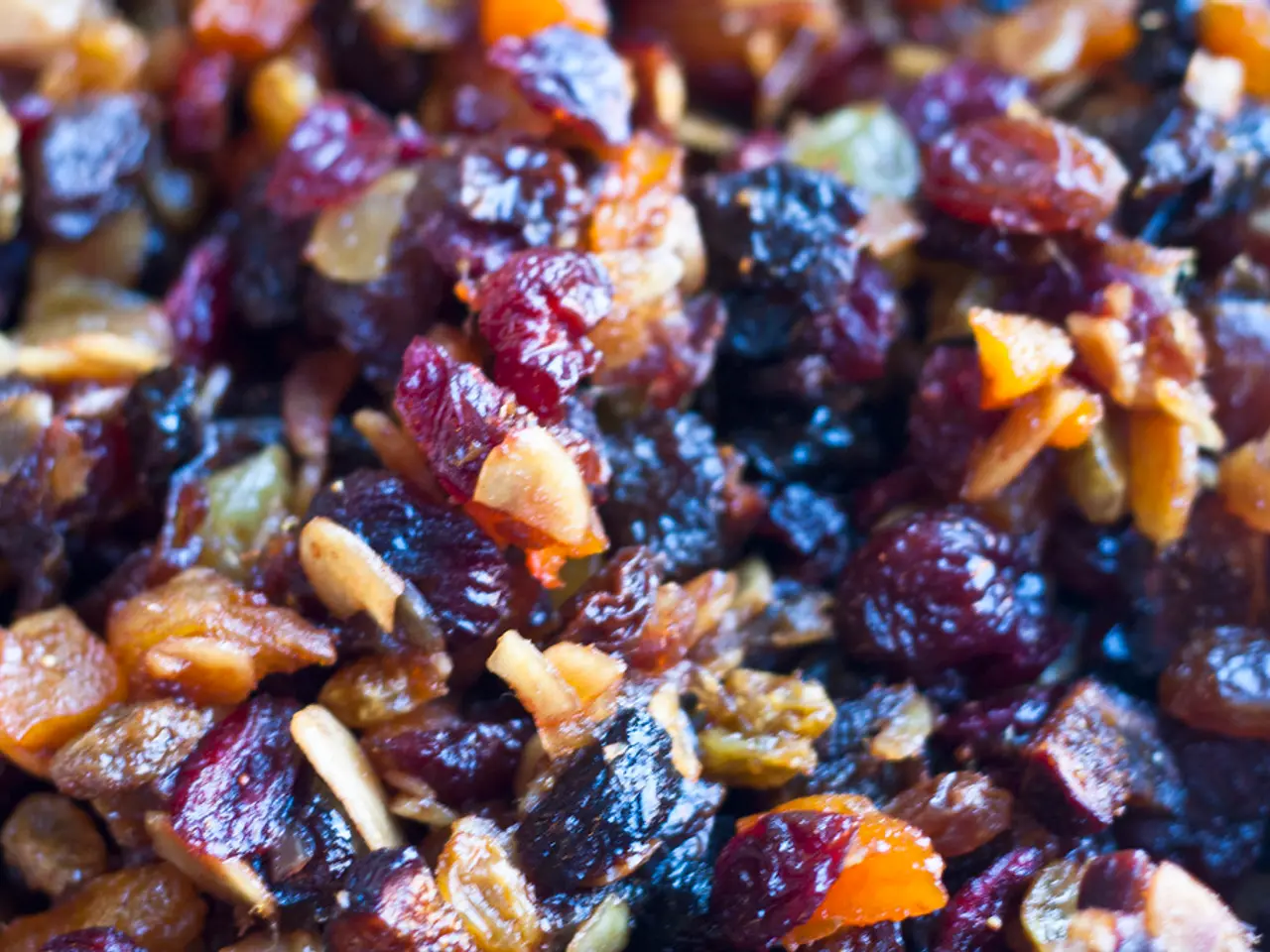Thirty-two items of human food that are harmful to canines
Feeding dogs human food can lead to severe health issues due to dietary differences. It's essential to be aware of the common toxins in human food that are dangerous for dogs. Here are some foods to avoid giving to your furry friend.
Toxic Foods to Avoid
Allium Family
Foods like onions, garlic, chives, leeks, and scallions belong to the allium family. They contain thiosulfate compounds that can destroy red blood cells in dogs, leading to anemia.
Chocolate
Chocolate contains theobromine, a substance toxic for dogs. Consuming chocolate can cause hyperactivity, irregular heart rhythm, seizures, and even death in dogs.
Grapes and Raisins
Grapes and raisins can cause kidney failure in dogs. It's best to keep these fruits away from your pet.
Avocado
Avocado contains persin, a compound that can cause health issues and pancreatitis in dogs.
Xylitol
Xylitol is a sugar substitute found in many sugar-free products. It's extremely toxic to dogs and can cause the pancreas to release insulin, leading to dangerous blood sugar levels.
Macadamia Nuts
Macadamia nuts can cause severe symptoms including weakness, lethargy, diarrhea, vomiting, tremors, and fever in dogs.
Raw Dough, Seafood, and Eggs
Raw dough can cause bloat, twisted gut, and alcohol toxicosis in dogs. Raw seafood can contain harmful bacteria, E.coli, and other parasites. Cook seafood plain, without flavorings that can be harmful to dogs. Raw eggs can contain salmonella and biotin deficiencies.
Cinnamon, Candy, and Almonds
Cinnamon can irritate a dog's mouth or stomach and should be avoided as a food for dogs. Candy and sugar provide no nutritional benefits for dogs and can cause vomiting, diarrhea, gastrointestinal problems, obesity, diabetes, and pancreatitis. Almonds can lead to digestive upsets and pancreatitis in dogs due to their high fat content.
Asparagus, Tomatoes, and Rhubarb
Raw asparagus can be difficult for dogs to digest and chew, making it a choking hazard. The fern of the asparagus plant is also toxic for dogs. Unripe tomatoes and all parts of the tomato plant contain a chemical called solanine, which can cause gastrointestinal distress in dogs. Rhubarb is toxic to dogs and can cause symptoms such as gastrointestinal pain, cardiac arrhythmia, swelling of the tongue and mouth, tremors, and vomiting.
Grapefruit, Nutmeg, and Blue Cheese
The skin, seeds, and rind of grapefruit are toxic to dogs, containing the compound psoralen, which can cause severe photosensitivity, vomiting, and diarrhea. Nutmeg contains the hallucinogenic compound myristicin, which can cause reactions such as a high heart rate, abdominal pain, disorientation, and seizures in dogs. Blue cheese is toxic to dogs and can cause vomiting, fever, and seizures.
Other Foods to Avoid
Processed Food, Salt, and Ice Cream
Processed food contains high amounts of preservatives, salt, sugar, and fat, which are all potentially harmful to dogs. Excessive salt intake in dogs can lead to hypernatremia, a condition where the blood contains too much sodium, causing vomiting, diarrhea, and potentially life-threatening neurological complications. Ice cream contains high amounts of sugar and fat, and is not recommended for dogs as it can cause obesity or even pancreatitis.
Corn on the Cob, Apple Seeds, and Canned Soup
Dogs should not eat corn on the cob as it can cause intestinal blockages and even rupture, leading to symptoms like vomiting, inappetence, lethargy, and pain. Apple seeds contain cyanide, which is released when they are chewed, and should be removed before giving apples to dogs. Most canned soups contain high amounts of salt, preservatives, and toxic ingredients such as garlic and onion.
In conclusion, it's crucial to be mindful of the foods you give to your dog. Stick to dog food specifically designed for their nutritional needs to ensure their health and wellbeing.
Read also:
- The Distinction Between Sexual Identity and Gender Identity
- Symptoms, Prevention Strategies, and Management Methods for Measles
- Climate Change Impact Mitigation in Health: Reducing the Disparity of the Health Sector's Exposure to Climate Change Challenges
- Increased measles cases Approaching 1,500 in the United States, with a new case detected in the Chicago metropolitan area.




